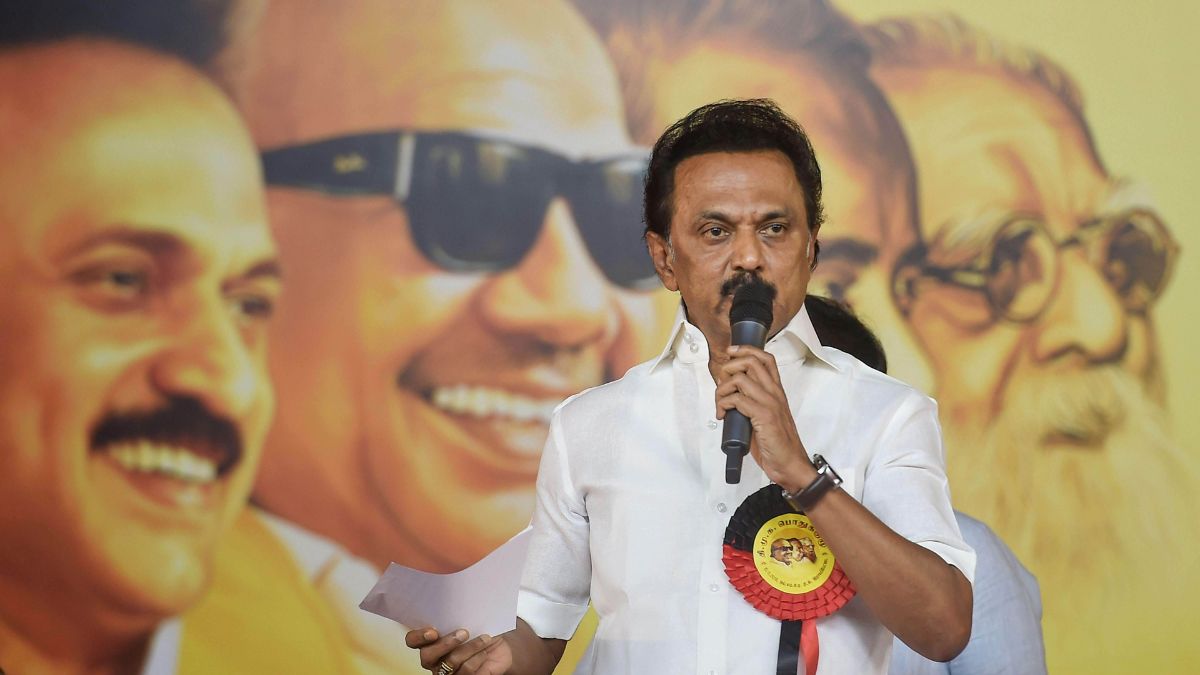Tamil Nadu and the Central government are at loggerheads over the three-language formula in the National Education Policy (NEP). The debate has hit headlines as a war of words erupting between the Tamil Nadu government and the Bharatiya Janata Party-led Centre.
Union Education Minister Dharmendra Pradhan on Tuesday (March 11) attacked the Dravida Munnetra Kazhagam (DMK) government in Tamil Nadu over its opposition to implementing the National Education Policy (NEP) 2020, describing it as “hypocrisy”.
On the other hand, Tamil Nadu Chief Minister MK Stalin has accused the Centre of withholding funds under Samagra Shiksha Abhiyan (SSA) scheme – a school education programme partially funded by the Central government.
Let’s take a look at the controversy.
TN’s resistance to three-language formula
Tamil Nadu is not in favour of the three-language formula in the National Education Policy (NEP) 2020. While it does not mention any specific language, the NEP – which aims to regulate education in the country – says that at least two should be “native to India”.
The NEP calls for “early implementation of the three-language formula to promote multilingualism” at the school level.
It promotes the three-language formula “while keeping in mind the Constitutional provisions, aspirations of the people, regions, and the Union, and the need to promote multilingualism as well as promote national unity”.
“There will be a greater flexibility in the three-language formula, and no language will be imposed on any state. The three languages learned by children will be the choices of states, regions, and of course the students themselves, so long as at least two of the three languages are native to India,” the NEP 2020 states.
Impact Shorts
More ShortsHowever, the DMK fears the three-language formula in the NEP 2020 will lead to the imposition of Hindi.
Tamil Nadu, which follows Dravidian ideology, has a history of agitation against Hindi imposition. The southern state currently has a two-language system with students being taught Tamil and English.
While CM Stalin and his DMK stress they are not against Hindi, they have alleged the aim of the Centre’s policy is to impose the language on non-Hindi speaking states.
DMK MP Kanimozhi has also questioned the need for a three-language policy. Speaking to Indian Express, she said, “What is right with the three-language policy? Students have enough burden in schools. You have to learn so many subjects, and on top of that you are forced to learn three languages instead of two.”
However, the Centre has denied the charges. “We have never said in NEP 2020 that only Hindi will be there; we have only said that education will be based on mother tongue - in Tamil Nadu, it will be Tamil,” Union minister Pradhan told reporters last week.
The row between TN-Centre
Tamil Nadu’s DMK government and the Central government are at odds over the NEP . The debate reached Lok Sabha on Monday after Union Education Minister Dharmendra Pradhan lashed out at CM Stalin and his party members alleging them of being “dishonest” and taking a “U-turn” over the implementation of the Centre’s PM Schools for Rising India (PM Shri) scheme.
Pradhan’s remarks caused a row in Parliament with a protest from DMK MPs. The comments were later expunged by Lok Sabha Speaker Om Birla.
On Tuesday, the Union education minister shared a letter on X about Tamil Nadu’s stance on PM SHRI schools. The letter dated March 15, 2024 was from the Tamil Nadu Education Department, stating that the southern state is “very keen” to sign a memorandum of understanding (MoU) to set up PM SHRI schools “based on the recommendations of the committee” it formed in this regard.
Yesterday, DMK MPs and Hon’ble CM Stalin accused me of misleading the Parliament regarding Tamil Nadu’s consent for establishment of PM-SHRI Schools.
— Dharmendra Pradhan (@dpradhanbjp) March 11, 2025
I stand by my statement made in the Parliament and am sharing the consent letter from Tamil Nadu School Education Department… pic.twitter.com/vp6GtPEp1q
“Why this sudden change of stance on NEP? Definitely for political brownies and reviving DMK’s political fortunes. This retrograde politics of DMK is a great disservice to the bright future of Tamil Nadu and its students,” he wrote in his post on X.
The DMK has dismissed his charges, with Stalin saying Tamil Nadu never accepted the PM Shri scheme.
தன்னை மன்னரென எண்ணிக் கொண்டு ஆணவத்துடன் பேசும் ஒன்றியக் கல்வி அமைச்சர் @dpradhanbjp அவர்களுக்கு நாவடக்கம் வேண்டும்!
— M.K.Stalin (@mkstalin) March 10, 2025
தமிழ்நாட்டின் நிதியைத் தராமல் ஏமாற்றும் நீங்கள் தமிழ்நாட்டு எம்.பி.க்களைப் பார்த்து அநாகரிகமானவர்கள் என்பதா?
தமிழ்நாட்டு மக்களை அவமானப்படுத்துகிறீர்கள்.… pic.twitter.com/wKQ7FhX3rj
As per The Hindu report last August, the Centre had asked the Tamil Nadu government to sign an MoU to establish PM Shri schools, which would mean implementing the NEP 2020 “in its entirety”.
The DMK has alleged that the Centre has not allotted Tamil Nadu its share of funds for Samagra Shiksha Abhiyan due to its opposition to NEP.
DMK MP T Sumathy claimed in Parliament recently that Rs 2,000 crore funds meant for Tamil Nadu were diverted to other states amid the southern state’s reluctance to NEP.
Terming it “a death knell for cooperative federalism”, Sumathy asked whether the Centre could use funds as a tool for “revenge”, at the cost of school students.
The Centre had withheld funds amounting to Rs 2,152 crore under the Samagra Shiksha scheme. Pradhan had earlier said the funds would not be released unless Tamil Nadu implemented the NEP and adopted the three-language formula, as per Indian Express.
Last month, CM Stalin wrote a letter to Prime Minister Narendra Modi, seeking the release of these funds urgently.
It is not just Tamil Nadu that is against the PM Shri scheme.
In a letter dated March 2024, Kerala agreed to sign an MoU for setting up PM Shri schools, hoping for the release of funds withheld by the Centre. However, it later backtracked.
The Mamata Banerjee-led West Bengal government has also refused to implement the PM SHRI scheme.
With inputs from agencies


)

)
)
)
)
)
)
)
)



